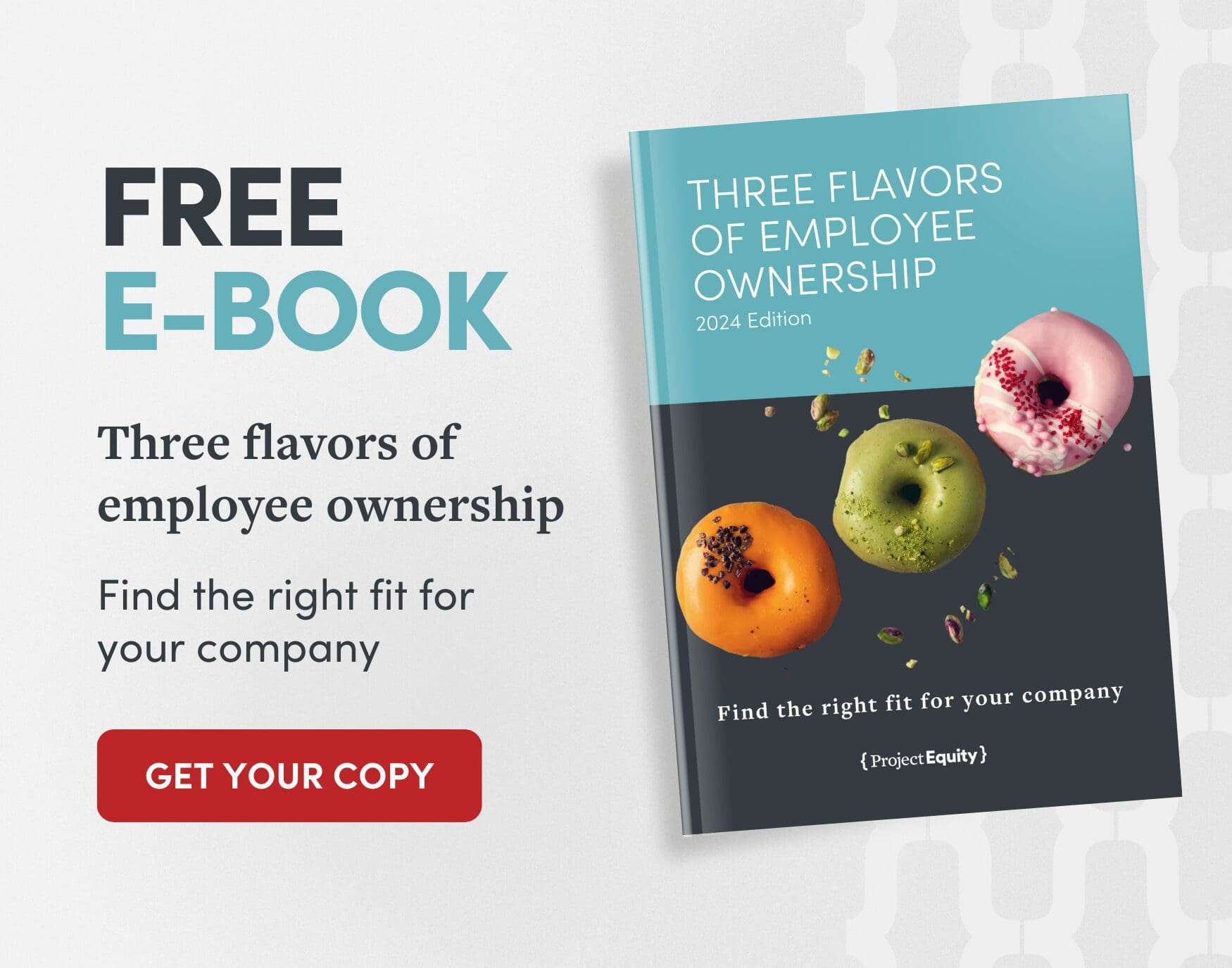Birmingham: a hub for business growth and employee ownership
- Donna Sky
Birmingham, Alabama, is a standout spot in the South for both business innovation and employee ownership (EO). I recently had a chance to travel to the Magic City for several exciting events with business owners, business advisors, and regional partners and saw firsthand how dynamic this community is.
I also connected with area organizations to learn more about the business community in Birmingham, why it’s flourishing, and why EO could be a great fit for many companies there.
The thriving business community in Birmingham
One of the first things you notice in Birmingham is how deeply innovation and entrepreneurship are embedded in the city’s identity.
Several key factors make the Magic City unique. “The cost of living in Birmingham is more affordable than in many other regions of the country, and the quality of life here is excellent,” said Victor Brown, the small business director at the Birmingham Business Alliance (BBA), the chamber of commerce and economic development organization for the seven-county Greater Birmingham Region. “We have a strong foundation in manufacturing and are the tech center of the state. In addition, we have many other growing sectors, including automotive and bioscience.”
Victor emphasized the sense of camaraderie and collaboration that’s evident in the business community in Birmingham. “Business owners can find great success here,” he explained. “It’s an incredible place. Startups can seek guidance from existing businesses that’ll share tips and tricks with them. There’s a real ease of doing business here. It’s very collaborative.”
There’s also a feeling of transparency in Birmingham. “The business community has a lot of openness, even if people don’t like something,” Victor shared. “We can talk across differences, and we’re able to put all our cards on the table. I think that’s what makes this the best city in America.”
Organizations like BBA play a big role in nurturing that ecosystem. Their Small Business Intensives, 12-week programs focused on helping small businesses scale, are one example of that support in action. They also lead initiatives like the Inclusive Procurement Council, which connects large regional procurers with local small businesses to strengthen the entire supply chain.
“Strong economies are regional economies,” Victor added, and Birmingham’s regional momentum reflects that belief. With these factors in place, the region is continuing to grow. A key part of that success comes from keeping businesses rooted in the community. Employee ownership supports this by offering a viable succession planning option for local business owners in Birmingham.
Why EO in Birmingham?
According to our data study, Shelby County, Alabama, has 1,852 businesses with owners aged 55+, representing 20,000 employees, $895M in payroll, and $4B in revenue. In neighboring Jefferson County, Alabama, there are 5,620 such businesses with owners over 55, employing 75,000 people, with $3 billion in payroll and $15 billion in revenue.
As the “Silver Tsunami” of business owners explore succession planning options, EO could be a strong strategy for many. Selling the business to employees and transitioning to employee ownership can be a powerful way to keep local businesses open, increase worker retention and engagement, boost productivity, and preserve the legacy of these companies after the owners step away.
“Often, when their children don’t take over a company, founders will close their business or will sell their business to a large competitor or to private equity,” Victor explained. “It would be ideal if the business owner became knowledgeable about selling the company using EO as an option. In fact, there is a likelihood that selling to employees will ensure that the business owner receives market value at the closing of the sale. What’s so exciting is that someone can sell a portion of their business, like 30% to begin with, and begin to have liquidation events take place.”
To help spread awareness about EO locally, Victor and the BBA are teaming up with other local partners like the City of Birmingham, the Alabama Center for Employee Ownership (ALCEO), and Project Equity (which does strategic work in Birmingham) to organize events for business owners.
In August, BBA hosted a well-attended succession planning webinar featuring an interview with Cameron Madill, founder of PixelSpoke. Cameron shared insights and lessons learned from converting his successful business into a thriving worker-owned cooperative. I joined the webinar as a panelist, along with Executive Director Kevin Burns from ALCEO, Entrepreneur Jeremy Spratling, Business Broker Philip Webb of TransWorld, and Scott Murphy, CFO of American Cast Iron Pipe Company (ACIPCO).
EO businesses in Birmingham
ACIPCO is a key employee-owned business in Birmingham. This iconic company, along with its family of subsidiaries, has operated in the region for over a century and became employee-owned in 1924.
Birmingham also boasts several other important EO businesses, including Chas. W. Ashby Company, Jordan Machine Company, New Capital Partners, Southpoint Bank, Sain Engineering Associates, TRO Jung | Brannen, the Onion Group, and Vineyard Brands Wines.
Conclusion
Birmingham is a city that blends deep-rooted tradition with forward-thinking innovation, contributing to its ongoing business success and the growing interest in employee ownership. With a collaborative spirit, robust support from organizations like BBA and ALCEO, and inspiring examples of EO businesses already thriving, the Magic City is uniquely positioned to lead the way in showing how communities can grow stronger when employees share in ownership.
“Birmingham is a city built on resilience, craftsmanship, and community,” said Kevin Burns from ALCEO. “These are the values reflected in the stories of the business owners who reach out to us. As they share how they’ve built companies that became neighborhood institutions, you can feel their deep sense of responsibility to employees, customers, and the city itself. These same values make Birmingham a natural home for employee ownership, where people take pride in creating something lasting and local.
“When we connect these owners with employee ownership experts and funding, we’re honored to help preserve their businesses and the legacies they represent,” Kevin continued. “We’re grateful that the City of Birmingham and the Birmingham Business Alliance share this vision, supporting employee ownership as a way to sustain local institutions and strengthen the city’s economic future.”
As more business owners in the region begin to consider succession planning, EO offers a powerful path to preserve legacies, retain jobs, and ensure that Birmingham’s economy continues to flourish for generations to come.
About the author
Donna Sky is a Senior Business Engagement and Partnership Manager at Project Equity, a national nonprofit that helps businesses transition to employee ownership. At Project Equity, she works directly with business owners and community partners to promote employee ownership as a strategy for succession, talent retention, and strengthening local economies. Donna is passionate about working with founders who want to use business as a force for good and is a long-time social entrepreneur.

Article details
Audience
Topic


